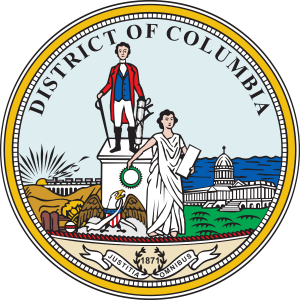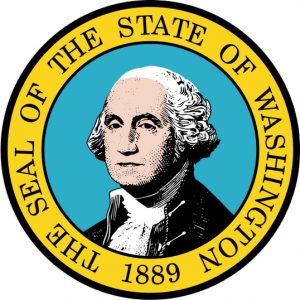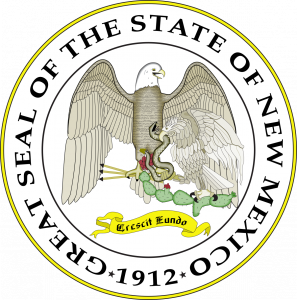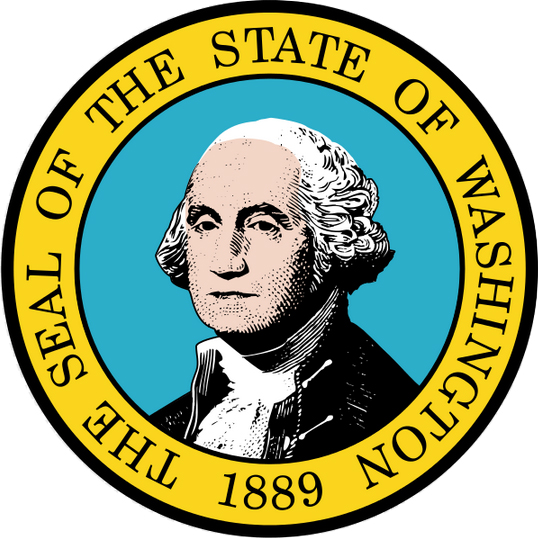On February 12, 2021, Maryland legislators voted to override Gov. Larry Hogan’s (R) veto of H.B. 732, making Maryland the first state in the nation to impose a digital advertising tax. While Maryland’s enactment of the bill is a first, other states have impending digital advertising tax bills, such as New York, Connecticut, Indiana, Nebraska, Washington, Montana and Massachusetts. Maryland’s digital advertising tax, which becomes effective March 14, 2021 (30 days after the Governor’s veto), has been preemptively challenged in U.S. District Court. Continue Reading ›
Articles Posted in Gross Receipts Tax
Should San Francisco Taxpayers File Protective Claims for Recovery of the Homelessness Tax and the Commercial Rents Tax?
In 2018, San Francisco voters approved, by simple majority vote, two new gross receipts taxes: the Homelessness Gross Receipts Tax (SF-HT) and the Commercial Rents Tax (SF-CRT), with both  taxes effective as of January 1, 2019.[1] Because these taxes fund specific governmental services, they are designated as special taxes (specifically, the SF-HT funds homelessness services and the SF-CRT funds early childhood education). Since the California Constitution specifies that special taxes imposed by local government need two-thirds voter approval (i.e., a “supermajority”), taxpayer groups have filed lawsuits to invalidate these special taxes, as both were approved by only a majority vote (61% for the SF-HT and 51% for the SF-CRT).[2] As discussed more fully below, the courts have ruled against these taxpayer groups and the California Supreme Court to date has refused review.
taxes effective as of January 1, 2019.[1] Because these taxes fund specific governmental services, they are designated as special taxes (specifically, the SF-HT funds homelessness services and the SF-CRT funds early childhood education). Since the California Constitution specifies that special taxes imposed by local government need two-thirds voter approval (i.e., a “supermajority”), taxpayer groups have filed lawsuits to invalidate these special taxes, as both were approved by only a majority vote (61% for the SF-HT and 51% for the SF-CRT).[2] As discussed more fully below, the courts have ruled against these taxpayer groups and the California Supreme Court to date has refused review.
The pressing question is whether San Francisco taxpayers, who paid the SF-HT and/or the SF‑CRT for 2019 and 2020, should be filing claims to protect their rights to refunds in the unlikely (but not impossible) event that these taxes are ultimately rendered invalid.
D.C. Council Abandons Digital Advertising Sales Tax Proposal
 The District of Columbia Council finalized the 2021 fiscal year budget yesterday, which removed the recently enacted digital advertising tax. The Council’s July 28 vote formalized the elimination of a proposed 3% sales tax on gross receipts from traditional and digital advertising services and from the sale of personal information (e.g., IP addresses, , names, phone numbers, biometric data etc.). The proposal defined “digital advertising services” as “advertising services related to advertisements displayed on a digital interface, including advertisements in the form of banner advertising, search engine advertising, interstitial advertising, or other comparable advertising.” “Digital interface” was defined as “any combination of hardware and software that an individual may use to access internet-based platforms such as websites, parts of websites, or applications.”
The District of Columbia Council finalized the 2021 fiscal year budget yesterday, which removed the recently enacted digital advertising tax. The Council’s July 28 vote formalized the elimination of a proposed 3% sales tax on gross receipts from traditional and digital advertising services and from the sale of personal information (e.g., IP addresses, , names, phone numbers, biometric data etc.). The proposal defined “digital advertising services” as “advertising services related to advertisements displayed on a digital interface, including advertisements in the form of banner advertising, search engine advertising, interstitial advertising, or other comparable advertising.” “Digital interface” was defined as “any combination of hardware and software that an individual may use to access internet-based platforms such as websites, parts of websites, or applications.”
Washington Judge Rules In Favor of Financial Institutions – B&O Tax Measure Discriminates Against Out-of-State Banks
 Earlier this month, a Washington state trial judge struck down the state’s recently enacted Business & Occupation Tax (“B&O) measure on large out-of-state financial institutions finding that although the tax measure was facially neutral, the purpose and effect of the tax was discriminatory against out-of-state banks. See Washington Banker’s Ass’n. et ano. v. State of Washington et al., Docket No. 19-2-29262-8 SEA (Wa. Kings County Super. Ct. May 15, 2020). As background, the Washington Bankers Association and American Bankers Association (collectively “Bankers Associations”) filed a challenge to invalidate state House Bill 2167, which seeks to impose a higher B&O tax on out-of-state financial institutions whose annual net income equals to or exceeds $1 billion (the measure would nearly double the B&O tax on out-of-state financial institutions from 1.5% to 2.7%). The Bankers Associations sought to invalidate the law, which became effective January 1, 2020, on the grounds that the measure violates: (1) the state’s constitutional requirement to introduce a bill at least 10 days prior to the adjournment of a legislative session; and (2) the U.S. Constitution’s Commerce Clause because it discriminates against out-of-state financial institutions by imposing a higher tax rate on out-of-state financial institutions versus in-state institutions. On February 13, 2020, the trial court dismissed the Bankers Associations’ state constitutional challenge, finding that the court was prohibited from looking into legislative procedures preceding the enactment of a statute that is “properly signed and appears fair on its face.” However, the judge’s decision preserved the Bankers Associations’ federal constitutional cause of action i.e., the B&O tax measure violates the Commerce Clause because it discriminates against out-of-state financial institutions by creating a differential tax rate for in-state versus out-of-state financial institutions. Upon further briefing, both parties moved for summary judgement and oral argument was held in the matter. Continue Reading ›
Earlier this month, a Washington state trial judge struck down the state’s recently enacted Business & Occupation Tax (“B&O) measure on large out-of-state financial institutions finding that although the tax measure was facially neutral, the purpose and effect of the tax was discriminatory against out-of-state banks. See Washington Banker’s Ass’n. et ano. v. State of Washington et al., Docket No. 19-2-29262-8 SEA (Wa. Kings County Super. Ct. May 15, 2020). As background, the Washington Bankers Association and American Bankers Association (collectively “Bankers Associations”) filed a challenge to invalidate state House Bill 2167, which seeks to impose a higher B&O tax on out-of-state financial institutions whose annual net income equals to or exceeds $1 billion (the measure would nearly double the B&O tax on out-of-state financial institutions from 1.5% to 2.7%). The Bankers Associations sought to invalidate the law, which became effective January 1, 2020, on the grounds that the measure violates: (1) the state’s constitutional requirement to introduce a bill at least 10 days prior to the adjournment of a legislative session; and (2) the U.S. Constitution’s Commerce Clause because it discriminates against out-of-state financial institutions by imposing a higher tax rate on out-of-state financial institutions versus in-state institutions. On February 13, 2020, the trial court dismissed the Bankers Associations’ state constitutional challenge, finding that the court was prohibited from looking into legislative procedures preceding the enactment of a statute that is “properly signed and appears fair on its face.” However, the judge’s decision preserved the Bankers Associations’ federal constitutional cause of action i.e., the B&O tax measure violates the Commerce Clause because it discriminates against out-of-state financial institutions by creating a differential tax rate for in-state versus out-of-state financial institutions. Upon further briefing, both parties moved for summary judgement and oral argument was held in the matter. Continue Reading ›
San Francisco’s COVID-19 Pandemic “Relief”
 In addition to the COVID-19 pandemic relief federal and state authorities have provided to taxpayers in the form of delayed tax return filing and payment deadlines (see Pillsbury’s 3/21/20 Legal Alert co-authored by Carley and Mike, among others), San Francisco has also issued some relief in connection with its core local business taxes, including its Gross Receipts Tax, Payroll Expense Tax, Commercial Rents Tax and Homelessness Gross Receipts Tax, or collectively the “San Francisco Local Business Taxes.”
In addition to the COVID-19 pandemic relief federal and state authorities have provided to taxpayers in the form of delayed tax return filing and payment deadlines (see Pillsbury’s 3/21/20 Legal Alert co-authored by Carley and Mike, among others), San Francisco has also issued some relief in connection with its core local business taxes, including its Gross Receipts Tax, Payroll Expense Tax, Commercial Rents Tax and Homelessness Gross Receipts Tax, or collectively the “San Francisco Local Business Taxes.”
New Mexico Court of Appeals Upholds Refund Claim Dismissal for Taxpayer’s Violation of Discovery Order
 The New Mexico Court of Appeals decided a case illustrating the heavy risks of failing to comply with a court’s order. Specifically, the Court of Appeals upheld the District Court’s full dismissal of a taxpayer’s refund claim for violating a discovery order. In Bowman v. Manforte, the taxpayer sought a refund of Gross Receipts Tax arguing that her income was exempt as wage income rather than income from an independent business. The New Mexico Department of Revenue Services (“Department”) suspected the taxpayer’s federal tax return would reflect deductions against the income that would be permitted only if the income were business income and not wages for federal income tax purposes. The taxpayer refused to produce the federal tax return, claiming that the return was privileged from civil disclosure under New Mexico’s tax secrecy law. The Department brought the taxpayer’s refusal before the District Court and twice obtained orders requiring the taxpayer to produce the return. After the taxpayer failed to comply with the disclosure orders, the District Court took the dramatic step of dismissing the taxpayer’s refund claim altogether. The taxpayer appealed to the Court of Appeals. Continue Reading ›
The New Mexico Court of Appeals decided a case illustrating the heavy risks of failing to comply with a court’s order. Specifically, the Court of Appeals upheld the District Court’s full dismissal of a taxpayer’s refund claim for violating a discovery order. In Bowman v. Manforte, the taxpayer sought a refund of Gross Receipts Tax arguing that her income was exempt as wage income rather than income from an independent business. The New Mexico Department of Revenue Services (“Department”) suspected the taxpayer’s federal tax return would reflect deductions against the income that would be permitted only if the income were business income and not wages for federal income tax purposes. The taxpayer refused to produce the federal tax return, claiming that the return was privileged from civil disclosure under New Mexico’s tax secrecy law. The Department brought the taxpayer’s refusal before the District Court and twice obtained orders requiring the taxpayer to produce the return. After the taxpayer failed to comply with the disclosure orders, the District Court took the dramatic step of dismissing the taxpayer’s refund claim altogether. The taxpayer appealed to the Court of Appeals. Continue Reading ›
Washington B&O Tax Litigation Hits Financial Services Industry
 A Washington state trial judge partially granted the state’s motion to dismiss a lawsuit challenging the validity of a recently enacted Washington tax measure that increases the state’s Business & Occupation Tax (B&O Tax) on large, out-of-state financial institutions. The Plaintiffs, the Washington Bankers Association and American Bankers Association (collectively, the “Bankers Associations”) filed a challenge to invalidate House Bill 2167, which targets large out-of-state financial institutions by increasing Washington’s B&O Tax rate if the institution’s annual net income equals to or exceeds $1 billion. The Bankers Associations sought to invalidate the law, which became effective January 1, 2020, on the grounds that the measure violates: (1) the state’s constitutional requirement to introduce a bill at least 10 days prior to the adjournment of a legislative session; and (2) the U.S. Constitution’s Commerce Clause because it discriminates against out-of-state financial institutions by imposing a higher tax rate on out-of-state financial institutions versus in-state institutions. The state moved to dismiss the complaint, focusing on the procedural issue under the state’s constitution rather than the apparent discriminatory nature of the law. Specifically, the state asserted that the “enrolled bill doctrine” enjoined the Washington trial court from reviewing evidence, other than the final enrolled bill itself, to show that a constitutional violation occurred during the enactment process.
A Washington state trial judge partially granted the state’s motion to dismiss a lawsuit challenging the validity of a recently enacted Washington tax measure that increases the state’s Business & Occupation Tax (B&O Tax) on large, out-of-state financial institutions. The Plaintiffs, the Washington Bankers Association and American Bankers Association (collectively, the “Bankers Associations”) filed a challenge to invalidate House Bill 2167, which targets large out-of-state financial institutions by increasing Washington’s B&O Tax rate if the institution’s annual net income equals to or exceeds $1 billion. The Bankers Associations sought to invalidate the law, which became effective January 1, 2020, on the grounds that the measure violates: (1) the state’s constitutional requirement to introduce a bill at least 10 days prior to the adjournment of a legislative session; and (2) the U.S. Constitution’s Commerce Clause because it discriminates against out-of-state financial institutions by imposing a higher tax rate on out-of-state financial institutions versus in-state institutions. The state moved to dismiss the complaint, focusing on the procedural issue under the state’s constitution rather than the apparent discriminatory nature of the law. Specifically, the state asserted that the “enrolled bill doctrine” enjoined the Washington trial court from reviewing evidence, other than the final enrolled bill itself, to show that a constitutional violation occurred during the enactment process.
TEI Silicon Valley Chapter’s State & Local Tax Day & IPT Joint Meeting
![]() Pillsbury SALT was proud to present TEI/IPT Silicon Valley’s State and Local Tax Day & IPT Joint Meeting on December 5! The team presented a 3/4-day seminar that focused on topics related to the State and Local Tax implications of the Tax Cuts and Jobs Act, the U.S. Supreme Court’s decision in Wayfair, and other hot topics in state and local taxation.
Pillsbury SALT was proud to present TEI/IPT Silicon Valley’s State and Local Tax Day & IPT Joint Meeting on December 5! The team presented a 3/4-day seminar that focused on topics related to the State and Local Tax implications of the Tax Cuts and Jobs Act, the U.S. Supreme Court’s decision in Wayfair, and other hot topics in state and local taxation.
NYS Tax Department: Changes to Sales Tax Collection Requirement for Marketplace Providers
New York State increased the sales tax economic factor presence nexus threshold from $300,000 to $500,000. The change is retroactive to June 1, 2019. Accordingly, marketplace providers with no physical presence in the state are required to register and collect New York sales tax if the provider’s gross receipts from sales of tangible personal property in New York is equal to or exceeds $500,000 and facilitated more than 100 sales of tangible personal property delivered in the state. The sales are computed over the past four sales tax quarters. It’s not clear what prompted the state to increase the gross receipts threshold of the economic nexus standard—there are no other changes to the definition of marketplace provider, marketplace sellers or to any of the liability relief provisions. (For more information, access the recently issued marketplace provider guidance here, and the prior guidance here.)
California Prop C Taxpayers Should File Protective Refund Claims
(This article originally was published by Law360 on August 21, 2019.)
The repercussions of the California Supreme Court’s August 2017 opinion in California Cannabis Coalition, et al. v. City of Upland, et al.1 continue to reverberate, leading San Francisco’s business taxpayers to wonder what practical precautions to consider.
In a February article, we analyzed the Upland opinion, the over 40-year history of California’s two-thirds supermajority voting requirement for passing local special taxes, and an introduction to the first five post-Upland litigation challenges, including San Francisco actions involving the validity of two separate Proposition C voter initiatives that passed in 2018 with a majority but not a supermajority vote. In a follow-up article last month, we provided an update on the status of these five supermajority tax challenges pending around the state, including trial court decisions made in the two San Francisco Proposition C actions.
 SeeSALT Blog
SeeSALT Blog

